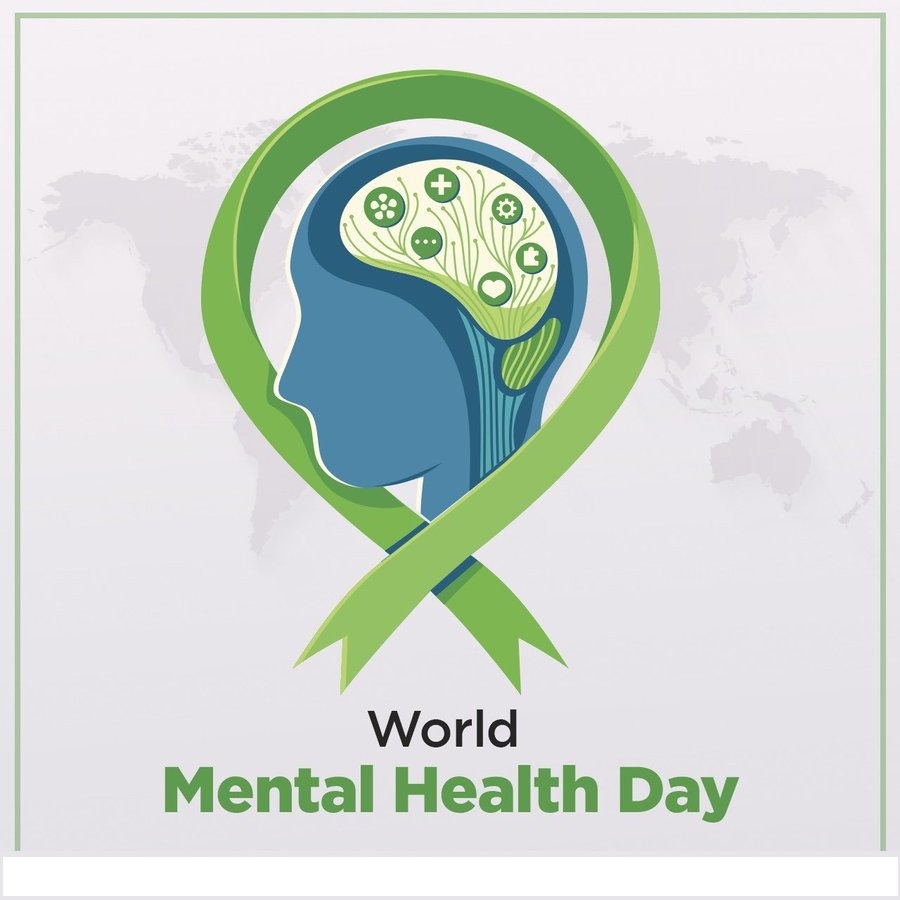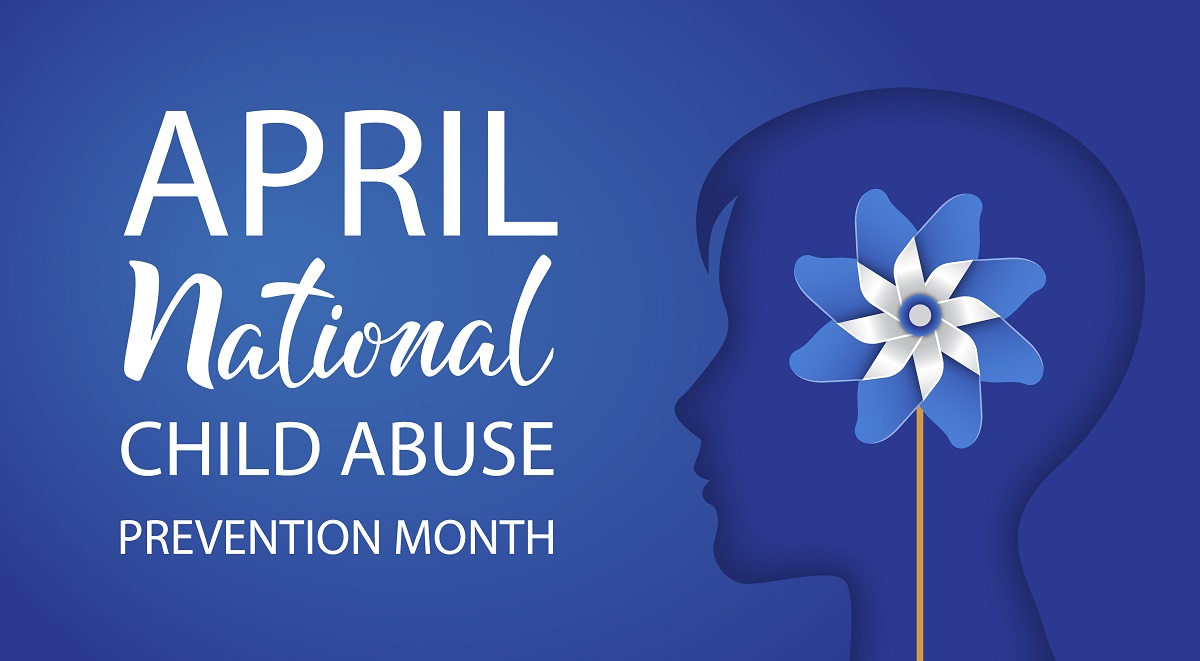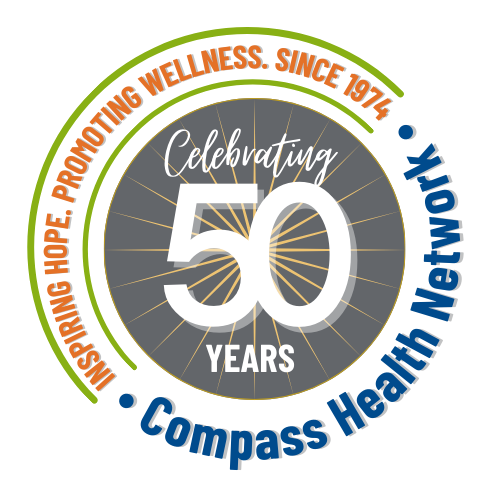
May is Mental Health Awareness Month: Everything You Need to Know
May is Mental Health Awareness Month: Everything You Need to Know
Over the past few years, the world has preoccupied itself with physical health. While that’s no wonder considering the pandemic, a new shift is here. Now, it’s time for us to all collectively focus on our mental health.
Since May is Mental Health Awareness Month, it’s a great time to get started. This month, make an effort to improve upon your existing mental health education. Get informed about common issues, and learn more about improving mental health, too.
If you don’t struggle yourself, then you can still use your knowledge to help someone else. Read on to get informed and learn more about how you can help celebrate this month by helping someone you love!
Common Mental Health Issues
One of the best ways to take advantage of mental health awareness month is to educate yourself. Mental health issues might seem like something on the fringe, but they’re not. In fact, the pandemic increased anxiety and depression diagnoses by 25% worldwide. That means that many of us know someone who is struggling, even if we’re not aware of it.
Here are some of the most common mental health issues to be aware of:
- Anxiety
- Depression
- PTSD
- ADHD (attention deficit hyperactivity disorder)
- OCD (obsessive-compulsive disorder)
- Bipolar disorder
If you’re currently in a crisis or you know someone who may be, Call 988. This suicide & crisis lifeline can help.
Improving Mental Health One Step at a Time
Finding help when you’re struggling mentally is paramount. Without help, mental health issues can lead to a host of other problems. For instance, if you have untreated anxiety, then you might try to self-soothe with drugs. Over time, this can turn into an addiction and even a substance use disorder. Improving mental health starts one step at a time. Do something that makes you feel good. Then, do something else! Don’t stop investing in yourself.
Celebrating Mental Health Awareness Month
Celebrating this month should start with your education. Then, you’ll want to use that information to your advantage to improve your own mental health. Don’t stop there, though! Keep going by helping others, too. Equipped with what you know, you can help others who are suffering. Simply saying something kind to someone else can do wonders. Do something nice, and you’ll improve not only your own mental health but someone else’s, too!
Take Advantage of Mental Health Awareness Month
This May, we’re asking all our readers to take advantage of mental health awareness month. You can expand your foundation of knowledge and improve your own mental health. By doing so, you’ll be making the world a better place. You’ll also be helping those around you, too. If you know someone who is struggling, then do your best to be understanding.
Are you interested in celebrating this month by supporting mental health programs?
Consider making a donation to Compass Health Network today! You’ll be helping to serve communities throughout Missouri.

How Social Media Affects Mental Health
How Social Media Affects Mental Health
Globally, 59% of humans spend about 2 hours on social media every day.
Like it or not, social media continues to have a real-world impact on so many aspects of life. What’s more, social media habits can alter a person’s mental and physical health.
On one hand, social media can help isolated individuals feel less lonely. On the other, it can cause a person to feel insecure, anxious, or stressed. Have you ever felt this way after browsing online?
Exposure to so much content has its pros and cons.
Learn more about how social media could be impacting your mental health below.
The Effects of Social Media on Mental Health
Social media use has serious consequences on adult and youth mental health.
For some, social media provides an outlet for expression and social connection. For others, it becomes a breeding ground for bullying, negative content, and fear.
The way social media impacts you depends on the content you’re consuming. With that in mind, your behavioral health is linked to your online actions.
You can check to see the effect social media has on you by becoming more mindful. Take note of your emotions as you scroll, see certain content, or read through comments.
The Social Media Impact of Engagement Algorithms
Have you noticed that you’re feeling more negative after using social media? If so, then it might be more than a coincidence.
Facebook’s algorithms value your negative reactions way more than your normal likes. In fact, your feeds consider angry reactions 5 times as valuable as normal likes!
If you respond angrily to a post, then you’re likely to see 5 times as much of that type of content in the future.
You can combat this by refusing to use angry reactions. Don’t give negative content any of your attention at all.
This very important social media hack can solve most negative social media problems.
Possible Social Media Dangers You Need to Know About
Social media can cause and contribute to mental health conditions like:
- Anxiety
- Depression
- Body image issues
- Cyberbullying
- Insomnia
- FOMO
- Validation seeking
What’s more, social media can also become addictive. If you frequently use social media, then it’s best to attempt to fill your feed with positive posts.
You should also make sure not to spend too much time online. Like all things, balance is key. You can minimize the negative consequences of social media by balancing it with in-person socialization or other hobbies.
The Link Between Social Media and Mental Health Issues
Regardless of how you view social media, it’s obvious that it’s here to stay. To ensure you use it wisely, you’ll want to keep what you’ve learned in this article in mind. The link between social media and mental health issues is clear.
Too much social media can be either disastrous or empowering depending on how you use it.
If you know someone who struggles with mental health issues, then take the first step today. You can contact us to learn more about how our services might be able to help.

Going Back to School: Tips for Overcoming Anxiety and Bullying
Going Back to School: Tips for Overcoming Anxiety and Bullying
Do you have an anxious student on your hands? If so, then you’re far from alone. About 1 in 3 students will experience an anxiety disorder before they reach 18.
What’s more, data for that statistic was all compiled before 2020.
Since that time, the world has only become more stressful and anxiety-ridden. So, it’s likely that statistic has only gone up.
The good news is overcoming anxiety and bullying in school is not only possible but within reach. By taking a few steps before school starts, you can lay a healthy foundation for your student to thrive.
Keep reading to learn our top five tips on how to deal with elementary school bullies.
1. Focus on Communication With Your Child
One of the biggest reasons you may have an anxious student on your hands is because of a lack of communication. Some children don’t feel safe enough to express what’s happening to them.
Since they likely don’t have the coping skills needed to deal, they may suffer silently.
For that reason, you must focus on communicating with your child. You can’t help your child through something you don’t know is happening.
2. Normalize Student Anxiety
One thing that can help foster communication is normalizing student anxiety. In the past, society tended to downplay behavioral health issues like anxiety.
You can be the change you want to see by normalizing these issues for the next generation. Explain how every student will get anxious at some point. Then, explain the difference between productive and negative anxiety.
3. Talk About How to Handle Elementary School Bullies By Identifying Them First
Another thing you need to normalize is bullying. Explain to your child that bullies have always existed, and they always will exist. Bullying does not stop once kids reach adulthood.
That’s why you need to help your child identify and recognize bullying first. From there, you can start to discuss how to handle these situations when they come up.
4. Research and Discuss Coping Mechanisms
You should instruct your child to stay as far away from the bully as possible. Teach your child how to assert healthy boundaries and stand up for themselves.
Tell them who to report to if the other child continues to be disruptive.
5. Schools on Bullying: What Policies Are in Place?
Depending on the situation, you may need to consult with the school about what’s happening.
Learn what policies are in place, and verify they are being upheld. Take the necessary steps to escalate the situation to protect your child. Research your options if the school isn’t cooperating.
Overcoming Anxiety and Bullying in School
If you have a child going to school soon, then you must consider anxiety and bullying. These factors are present at all ages in school, and your child will get exposed if they’re in public school.
The good news is that overcoming anxiety and bullying in school is possible with these tips.
Keep communication open, normalize anxiety, and talk with your student. Discuss coping mechanisms, and consider talking to the school if things progress.
As a parent, you know that protecting your child is paramount. If you’re worried about their mental health, then we can help. Contact us to learn more about our services.

Understanding Suicide Prevention Month: #BeThe1To Make a Difference
Understanding Suicide Prevention Month: #BeThe1To Make a Difference
You Are Not Alone:
In moments of darkness, it’s crucial to remember that you are not alone. The struggles you face might feel isolating, but there is a network of support waiting to guide you towards light. Whether you’re battling personal challenges or concerned about a loved one, reaching out is the first step towards healing.#BeThe1To Make a Difference:
The #BeThe1To campaign encapsulates the essence of Suicide Prevention Month. It’s a call to action, urging each one of us to be that one person who can make a difference in someone’s life. A simple conversation, a caring gesture, or a supportive presence can offer the lifeline someone desperately needs. By taking the initiative, we become agents of hope and change.Getting Help:
If you or someone you know requires immediate mental health support, don’t hesitate to call 988. This three-digit number is dedicated to providing assistance during crisis situations. It’s a number that connects you to professionals who understand, listen, and offer guidance when you need it the most.Compass Health Network:
At Compass Health Network, we’re committed to promoting mental well-being and providing accessible care. If you’re seeking a mental health appointment, reach out to us at 844-853-8937. Our compassionate team is here to assist you on your journey to healing.Visit CompassHealthNetwork.org:
Conclusion:
During Suicide Prevention Month, let us come together as a community to #BeThe1To make a positive impact. Remember, there’s strength in unity, and even the smallest gestures can have a profound effect on someone’s life. Whether it’s lending an empathetic ear or seeking help for yourself, know that you have the power to make a difference. You are not alone – help and hope are just a call away.
Taking Care of Yourself During Suicide Prevention Awareness Month
Taking Care of Yourself During Suicide Prevention Awareness Month
Like many states in America, Missouri’s suicide rate is reaching alarming levels. The death rate is approaching 19 people for every 100,000 in the state.
There are many reasons why a person chooses to take their own life. Mental health, life-changing events, poverty, and drugs are just a few of the potential causes.
The good news is that we can all play a vital role in preventing suicide and saving lives. This is the purpose behind Suicide Prevention Awareness Month.
Read on to learn how to deal with suicidal thoughts, explore difficult topics such as suicidal ideation, and identify depressive symptoms.
What Is Suicidal Ideation?
This is a term used to broadly describe a person having suicidal thoughts. Some individuals develop a preoccupation with death and suicide. They openly or discretely wish for their own death.
Taking these thoughts seriously is a prerequisite for any suicide prevention strategy. Ignoring suicidal clues is a recipe for regret and tragedy. Instead, it is best to err on the side of caution and seek help when you discover indications of suicidal ideation.
Seeking help is not always as easy as it sounds. In some cases, there are no obvious signs that a person is struggling with depression or life purpose.
Is Mental Health Important?
Mental wellness and self-care are critical tenets for suicide prevention strategies. As a parent or loved one, it is essential that you learn about depression symptoms.
Depression presents itself in different ways depending on the person. For some people, there is a noticeable change in behavior. They are always sad, lack energy, and seem disinterested in their family and friends.
Others exhibit extreme highs and lows. They are happy and energetic one day. The next day, they are bedridden and do not want to move.
This may be a sign of bipolar disorder, which can be a root cause of depression. Anxiety is another root cause of depression. Like bipolar disorder, both of these mental health conditions can be treated.
There are also outward expressions of negativity linked to depression. A depressed person may come off as irritable, pessimistic, and frustrated.
What Are Some Suicide Prevention Tips?
The old adage of “see something, say something” is true for suicide prevention. Missouri citizens have access to a suicide and crisis lifeline, 988. This will quickly put you in touch with experts on the subject.
They will respond quickly to your situation and deploy first responders if necessary. Also, suicide and crisis hotlines refer you to medical networks that can help as needed. In Missouri, you can receive treatment at any Compass Health Network location.
Compass has specialists in behavioral health and substance use disorder. They can help diagnose depression and other root causes that may lead to suicidal ideation.
Your Guide to Suicide Prevention Awareness Month
September is Suicide Prevention Awareness Month, and you are ready to do your part. Spotting the signs of depression and other mental health disorders is the first step. The next challenge is enlisting the help of medical professionals.
If you want to learn more about suicide prevention, contact us today to speak with a medical expert.

World Mental Health Day
World Mental Health Day
It’s estimated that 23% of Missouri adult residents experienced a mental illness in 2020. That makes the likelihood of someone you know silently suffering pretty high!
Mental health needs to become a bigger priority for us all in 2023. Thankfully, October 10th is the perfect day to start to change our mindset.
October 10 is World Mental Health Day!
We hope you will take the time to celebrate this important day by learning more about mental health and mental wellness. If you can identify the signs and symptoms of mental health issues, you will be better positioned to act.
From there, you can help spread awareness about the importance of mental health.
Read on to learn more and empower yourself to make a difference.
World Mental Health Day: Spreading Awareness
We cannot properly celebrate World Mental Health Day until we know more about what mental health means. Mental health is described as our overall mental state. It includes our psychological, emotional, and social well-being.
Our mental health can determine how we handle stress. It can change how we act, think, and feel. It can also determine our emotional limits and boundaries.
There are many conditions, disorders, and diseases that can alter mental health. Take Covid-19, for instance. This virus can alter someone’s mental health by inducing insomnia, anxiety, and even depression into their life. (In many cases, it has affected them significantly.)
Here are a few common mental health problems:
- Depression
- Anxiety
- Obsessive Compulsive
- Disorder
- Panic disorder
- Post-Traumatic Stress Disorder
- Social anxiety disorder
- Bipolar affective disorder
- Schizophrenia
The more you know about these conditions, the better equipped you will be to spot them.
How to Spot Signs of Mental Health Problems
Since mental health takes into account many factors and the symptoms present in different ways, we can define it as a “spectrum.” That is why it is paramount to identify the symptoms of worsening mental health. Here are some things to watch for:
- Experiencing physical symptoms of anxiety (stomach issues, chest tightness, headaches)
- Feeling overly stressed and anxious to the point it prevents you from daily activities.
- Emotional outbursts
- Weight or appetite problems
- Withdrawing from family, friends, and favorite activities
- Abusing substances
- Experiencing suicidal thoughts
- Engaging in high-risk behavior
- Performing worse at work or school
Finding the right treatment is the pathway forward to better health.
How to Help Someone With Mental Health Issues
If you spot signs that their mental health is getting worse, then act on it immediately.
Encourage your loved one to open up about how they are feeling. Depending on the situation, you might also recommend professional help. A visit with a behavioral health expert could help your loved one change their life.
Celebrate World Mental Health Day on October 10
Understanding the impacts of mental health starts with getting informed. We need to be able to identify symptoms and issues. That way, we can help everyone cope by suggesting treatments for mental health issues.
On October 10 and beyond, keep this newfound information in mind.
Now that you know more, it’s time to act. If you are in Missouri or know someone in need, consider consulting with our health network. We can be reached by phone 844-853-8937 or walk in to start an assessment at a Compass Health Network location near you.
If you are in crisis, then call 988 to contact the Missouri lifeline suicide and crisis hotline now.

The Warning Signs of Domestic Abuse That You Should Never Ignore
The Warning Signs of Domestic Abuse That You Should Never Ignore
Domestic violence is far too common in Missouri. In fact, Missouri has the third-most abuse reports in the United States. In a single year, the state sees more than 45,500 reports of abuse.
October is domestic abuse awareness month. Awareness month is a great opportunity to increase your knowledge of the signs of domestic abuse, so you can be an advocate for individuals who are involved with an abusive partner.
Read on to learn how to stop domestic abuse. Explore topics such as what to do if you suspect domestic abuse.
What Are the Different Types of Abuse?
To be an advocate for others, it’s important to understand the many different types of abuse. Physical abuse is the easiest type to spot.
This is because abusers often leave their mark on a victim. They may leave bruises and cuts on a victim’s body. It is not uncommon to see the abused walking gingerly after abuse.
Many victims try to cover it up to protect their abusers. They may wear a long-sleeve shirt to conceal bruises or put on makeup to hide blemishes on their face.
Some abusers do not lay a hand on their victims. Instead, they use psychological or mental abuse as their weapon of choice. These types of abuse are much harder to identify. Even harder to recognize are the signs of financial, religious or sexual abuse. It is not uncommon for a victim to suffer multiple forms of abuse throughout the duration of their relationship, and even after the relationship has ended.
What Are the Signs of Domestic Abuse?
Many people feel uneasy asking an abuse victim about their cuts and bruises. The best tactic is to casually ask your friend or loved one how they got that bruise, scratch, limp, etc. and pay close attention to their reaction.
Also, look for unexplainable clothing choices. Is the victim wearing a hooded sweatshirt on a warm summer day?
There are professional tips for identifying mental or psychological abuse. For example, you may see a change in personality or behavior from your loved one. They may suddenly become reserved or introverted.
In some cases, your loved one may become distant. They may not have the desire to be social, or their abuser may disallow them to leave the home. This can lead to canceled plans. Also, they may experience feelings of depression or anxiety.
Many victims turn to drugs or alcohol in the wake of abuse or are forced to begin using a substance by their abuser. Observing a new or increased consumption of a substance may indicate that something is wrong.
What to Do if You Suspect Abuse?
Once you have confident suspicions of abuse, it is time to help your loved one. If you see something, it is important to say something.
It’s best if the victim seeks help on their own. You should encourage a loved one to seek help but understand they may not want to compromise the abuser. Leaving an abusive relationship is often the most dangerous time for a victim.
There are abuse hotlines that provide resources and guidance for victims and their families. This is the most anonymous and discrete way to handle abuse.
Your Guide to Spotting and Reporting Abuse
You now have a basic understanding of spotting and reporting abuse.
To help, start off with a conversation with the victim. Without prying or pushing, try to persuade them to seek help.
If you are a victim of domestic abuse and need medical attention please call our shelter services with resources at 636-232-2301 or contact us at Compass Health Network to receive professional help.
You now have a basic understanding of spotting an abusive relationship. The most important thing you can do if you know someone is living with abuse is to offer support without pressure. Assure the victim that you are there to listen and refrain from telling them what they “should, or must” do.
Have a list of resources to provide the victim and give them a safe place to use a telephone to contact services. Advocates at A Safe Place are available 24/7 every day of the year to speak with victims. Advocates can provide connection to resources, safety planning, crisis services, emergency shelter and more. Friends and family of victims are also invited to call the shelter for resources, education and support.
You may offer to store a go bag for the victim if they flee in a hurry. You can help the victim gather important documents such as photo id’s, birth certificates and social security cards and a change of clothes or some spare cash to put in the go bag.
On average a victim will attempt to leave an abuser seven times before they are successful. Through this process they often lose their support network as family and friends grow tired of seeing them return to their abuser. The best thing to do for a victim is have resources ready when they are needed and to remain a constant supportive person who will not judge or lecture the victim’s choices.
If you are a victim of domestic abuse and need medical attention, contact us at Compass Health Network to receive professional help or call our shelter services at 636-232-2301.

The Importance of National Stress Awareness Month Activities
The Importance of National Stress Awareness Month Activities
In 2022, Missouri was ranked 49th in the nation for adult mental health. This suggests that many adults in Missouri struggle with mental health issues and are not getting the care they need.
April has many monthly-long observances and campaigns to raise awareness about various issues. In the United States, it is the time of the year when National Stress Awareness Month is observed to highlight the causes of stress and how they impact people’s lives.
Try these Stress Awareness Month activities to learn how to handle stress more effectively.
Meditation
Although World Meditation Day is observed annually on May 21, you should dedicate a few minutes per day to the millennia-old practice of meditation. Fitting a short meditation into your day can help calm your mind, reduce anxiety, and improve your focus.
Regular Exercise
Regular physical activity, whether it’s a brisk walk, a yoga session, or a workout at the gym, not only helps you keep fit but can also significantly reduce stress levels and improve your mood.
Nature Walks
If you’re a nature lover, consider spending more time in nature. A walk in the park or a hike in the woods can be incredibly soothing for the mind. Plus, it’s good exercise for the body.
Journaling
If you live with anxiety or depression, writing down your thoughts and feelings in a journal can help you manage them better. By journaling about your feelings and experiences, you can reduce the impact of stressful events. This will help you avoid chronic stress and anxiety.
Hobbies
When it comes to de-stressing, nothing beats doing the things you love or enjoy. Whether painting, cooking, gardening, or playing a musical instrument, hobbies can be a great stress reliever.
Digital Detox
In 2022, the average American spent 8 hours and 14 minutes per day with digital media. This can be mentally draining and exhausting, resulting in high-stress levels.
Digital information overload can add to your stress. Take breaks from social media and other digital platforms.
Healthy Eating
Did you know that what you eat can affect how you feel? Foods rich in vitamins and minerals can boost your mood and energy levels. Maintain a varied diet to ensure your body gets all the essential nutrients it needs to keep healthy while improving your mood.
Quality Sleep
If you haven’t been getting quality sleep, prioritizing it can help with your stress management. Good sleep restores your mind and body, resulting in positive moods.
Socialize
How often do you connect with other people? Social support is vital for dealing with stress. Talking to family and friends can help you in coping with stress. Consider attending community events to meet new people you can engage with.
Try These Stress Awareness Month Activities to Boost Your Well-Being
By incorporating these National Stress Awareness Month activities into your routine, you can manage various types of anxiety, reduce stress levels, and promote overall well-being. If stress becomes overwhelming, consider getting help from a qualified therapist or counselor.
Don’t hesitate to get in touch with us at Compass Health Network for professional help with stress management. As a network of patient-focused healthcare providers in Missouri, we know the different types of stress and how to manage them.

25 Days of Ways to Deal with Family Dynamics Around the Holidays
25 Days of Ways to Deal with Family Dynamics Around the Holidays
The countdown to the holidays has begun! And while it may be the most wonderful time of year, family dynamics can also make it the most stressful time of year.
What is family dynamics? If you’re looking at a basic family dynamics definition, it’s about the interactions and factors that shape them with relatives. However, knowing the family dynamics meaning isn’t enough.
From healthy to narcissistic family dynamics, it can be a challenge during the holidays for anyone. Keep reading for tips on how to deal with your family this holiday season.
December 1-5: Don’t Burn Out
As December begins, calendars quickly fill up. It’s crucial to prioritize gatherings so you don’t burn out faster than chestnuts roasting over an open fire.
Here are a few things to remember as the party and open house invitations begin to roll in:
- Remember it’s okay to say no.
- Know when to say no.
- Turn off your phone if you’re tempted to cave into the pressure.
- Don’t let social media overwhelm you.
- Talk to your therapist about setting and maintaining boundaries.
December 6-10: Can Someone Make Those Drummers Stop Drumming?
The music and lights around the holidays can quickly become overwhelming for people with sensory issues. Know how to protect yourself before enjoying Christmas lights with your family.
- March to the beat of your own drum! (Noise-canceling headphones with music that relaxes you).
- Be the cool kid with sunglasses. (Block out excessive light).
- Practice self-calming exercises and remember that routine exercise dramatically helps with managing stress. (mindfulness, coloring, fidget toys, etc.).
- Santa doesn’t come unless you’re asleep. (get enough sleep).
- Find a safe space and take a break!
December 11-15: Know When to Stay and When to Go…
The weather outside may be frightful, but knowing when to go is essential, even if it is snowing. Time to yourself is as vital as time with friends and family (think of it as a gift to yourself)!
- Take a walk (but don’t get run over by a reindeer).
- Make a craft (make your own decorations and ornaments).
- Read a book (or take a nap while pretending to read a book).
- Treat yourself to a coffee date (peppermint mocha, anyone).
- Spend time journaling (write what you are feeling, it’s therapeutic).
December 16-20: Holiday Party Woes
Eating cookies and candy may be fun, but it also may encourage you to overindulge if you have social anxiety.
- Drink decaf peppermint mocha (cut down on the caffeine).
- Challenge yourself to face your fears (even if you must wear an ugly sweater).
- Reframe your thoughts (think of your happy place rather than consuming excess sugar).
- We won’t tell anyone (hide in a safe space to take a break).
- Keep your mind and hands busy (cooking, football, games, etc.).
December 21-25: Embrace the Days the Best You Can!
Do they know it’s Christmas time at all?
- Avoid controversial topics (politics are a no-no).
- Set a time limit on visits (it’s less stressful if you know what time you will leave).
- Don’t deny your feelings (even if it’s a Blue Christmas, do you have a professional that you can talk to)?
- Protect your holiday (choose to spend it with just your immediate family).
Conquer Challenging Family Dynamics
Family dynamics can be a challenge during the holidays. We’re here to help.
At Compass Health Network, we believe in moving beyond health to a wellness lifestyle. We’re committed to meeting the unique needs of our community. Contact us to get started with mental health services.

Black History Month 2024: Celebrations, Health Concerns, and Trends
Black History Month 2024: Celebrations, Health Concerns, and Trends
As Black History Month 2024 approaches, it’s not just a time for celebration and reflection. It’s also an opportunity to cast light on health concerns and new trends shaping the African American community.
Join us on a journey where Black history, health, and the future come together in amazing ways.
Holiday
Black voices, black stories, black art…there are many fantastic ways to honor and celebrate Black History Month in 2024. Below are some ideas to get you started.
- Watch Black History films and documentaries.
- Visit museums dedicated to Black history, art, and culture.
- Create inspirational Black History Month art.
- Start or join a Black History Month book club.
- Support Black-owned businesses.
- Try out new African and African American recipes.
- Explore online resources that promote black history and culture.
Celebrating Black History Month is not just about a single approach. It’s about embracing a combination of these ideas that resonate with you. By doing so, you’ll not only honor the past but also shape a future that embraces diversity and fosters unity.
Health
Early-onset chronic diseases are robbing years from many young African Americans. For example, Black people are far more likely to develop cancer compared to any other racial/ethnic group in the States. These conditions are often preventable.
Sadly, disproportionate access to primary healthcare makes it harder for this community to stay healthy. Other significant health risk factors for the Black community include:
- Heart disease
- High blood pressure
- Stroke
- Cancer
- Sickle cell disease
- Peripheral artery disease (PAD)
Regular health screening by your primary care doctor helps catch health problems early, even before they cause symptoms. This is especially important for chronic illnesses that can sneak up on you. Finding them early means getting treatment faster, which helps you stay healthy in the long run.
While you’re focusing on your health, it’s also a great time to honor African-American medical pioneers like Rebecca Lee Crumpler and Leonidas Harris Berry. Their immense contributions to medicine paved the way for better healthcare for everyone.
By combining an awareness of your health with an appreciation of these trailblazers, you’re not only celebrating your heritage but also fostering a deeper understanding of its impact on medical progress.
Trends
In recent years, Black History Month themes have focused beyond the role and contribution of Black people in American society. They have also highlighted the need for inclusivity in several key areas such as:
- Education
- Health and well-being
- Labor
Another growing Black History Month 2024 trend is the call for environmental climate justice. Environmental issues, particularly climate change, are disproportionately affecting minority communities, including African Americans.
Promote Your Health and Wellness on This Day in Black History Month 2024
By understanding Black History Month 2024 celebrations, health concerns, and trends, you can help carve out a better future for the Black community.
At Compass Health Network, we promote a diverse and inclusive work environment for all, and this is reflected in the quality of healthcare services we provide in Missouri.
Reach out to us today in Black History Month with your specific needs in behavioral health, pediatric and family medicine, dental care, or substance use disorder.

A Brief Guide to Women’s History Month 2024 in Missouri
A Brief Guide to Women’s History Month 2024 in Missouri
Spring isn’t the only thing blooming in Missouri this March. It’s also Women’s History Month, a time to celebrate the amazing women who’ve shaped our state and the entire nation.
This year, we’re casting light on Missouri’s unsung healthcare heroines, past and present. Join us as we explore their stories, honor their legacies, and find inspiration for our own journeys.
Victoria J. Fraser, MD
As a healthcare epidemiologist, she helps combat infections and other biological threats. Her leadership and research have made a big difference in preventing these threats. This ensures a safer healthcare environment for patients and healthcare workers.
Dr. Fraser’s work goes beyond protecting the vulnerable. It has helped shape better practices and policies in primary healthcare.
Laura Henderson Kelley, MD
She embodies compassionate care in her practice of internal medicine and pediatrics. This dual expertise allows her to offer families the support they need as they grow and evolve.
Dr. Kelley’s work helps bridge the gap between child and adult healthcare. She continues to impact the lives of many families in Missouri residents and beyond.
Brandi French, MD
Dr. French’s fascination with the brain led her to become a neurologist. With her expertise in vascular neurology, she helps patients battling stroke and other brain vessel diseases.
Dr. French doesn’t just treat; she educates her patients, giving them the knowledge they need to embrace their conditions. Her passion for advancing stroke care has saved lives and improved countless recovery journeys.
Elizabeth Garrett, MD
Dr. Garrett, a family medicine doctor, sees the bigger picture: keeping communities healthy.
Outside the clinic, she works with communities to prevent illness and promote well-being at all ages. Her work is integral for building healthier communities for everyone.
Anne T. Neff, MD
Even though she’s retired now, Dr. Neff was a key player in Missouri’s healthcare network including at women’s health clinic facilities. As a hematologist, she helped ensure safe blood transfusions. This was crucial for patients in dire need of blood.
She also helped diagnose, treat, and manage blood-related issues like anemia, clotting problems, and even blood cancers.
Dr. Alison G. Cahill, MD
Dr. Cahill is a shining star in Missouri’s maternal and fetal medicine scene. She guides expecting mothers through pregnancy’s ups and downs with expertise and compassion. Her unique blend of advanced medicine and personalized touch has revolutionized maternal-fetal care.
Dr. Cahill’s impact goes beyond the women’s health center walls. She’s a research leader, pioneering studies to improve outcomes for high-risk pregnancies. Her passion for keeping moms and babies healthy has left a lasting mark on the state’s healthcare.
Celebrate Women’s History Month 2024 by Getting Your Health Checked
The importance of women practitioners in the Missouri healthcare system cannot be overlooked. Women’s History Month 2024 is a great time to applaud their efforts while spotlighting specific women’s health issues.
At Compass Health Network, we help improve the physical and emotional health of Missourians. We achieve this by providing them with compassionate, quality care.
Don’t hesitate to get in touch with us if you need help with your specific health issues.

National Child Abuse Prevention Month
National Child Abuse Prevention Month
April is recognized as National Child Abuse Prevention Month (NCAPM), or “CAP Month,” a time when the importance of communities working together to support and strengthen families is highlighted to prevent child maltreatment. This observance underscores the critical role communities play in fostering a safe and nurturing environment for children and families. During NCAPM, efforts are made to increase awareness about the importance of child and family wellbeing and to implement effective strategies that support families and prevent child abuse and neglect (https://www.childwelfare.gov). The significance of this month resides in drawing attention to the ongoing need for education and resources to combat child abuse, which has been shown to have enduring negative impacts on children’s development and wellbeing.
Awareness of the signs of child abuse and maltreatment are crucial for early intervention and prevention. Recognized indicators of child physical abuse can include unexplained or frequently appearing injuries, behavioral changes or changes in school performance, passiveness or withdrawal from friends or family, fear of going home or fear of parents. Some indicators of child sexual abuse can include symptoms of sexually transmitted infections, injuries to the genitals, difficulty and/or pain when sitting and walking, sexually suggestive, inappropriate or promiscuous behavior or verbalization, expressing age-inappropriate knowledge of sexual relations, or the sexualization of other children. Common indicators of child maltreatment can include obvious malnourishment, listlessness or fatigue, stealing or begging for food, lack of personal care—poor personal hygiene, torn/dirty clothes, untreated need for glasses, dental or other medical care, frequent absence from or tardiness to school, and children left unattended or without supervision (https://ocfs.ny.gov/programs/cps/signs.php).
Recognition of these signs can lead to timely support and protection for the at-risk child. Children’s Advocacy Centers (CACs), through the utilization of a multidisciplinary teams (MDT) approach, play a pivotal role in this effort by bringing together professionals involved in child protective and victim advocacy services, law enforcement and prosecution, and physical and mental health to ensure a coordinated, comprehensive approach to each case (https://ojjdp.ojp.gov). CACs also provide essential direct services such as forensic interviews, victim advocacy, therapy, Sexual Assault Forensic Exams (SAFEs), courtroom preparation, case management, and other services, with the ultimate goal of supporting children and families in their journey toward healing and restoration, allowing them the opportunity to thrive after abuse (https://www.nationalchildrensalliance.org).
The Children’s Advocacy Center of East Central Missouri (CACECM), A Division of Compass Health Network, celebrates and promotes National Child Abuse Prevention Month through the sales of our annual Prevention t-shirts, by planting Pinwheel Gardens at the courthouses in our primary counties—Jefferson, Franklin, and St. Francois, and we cap the month off with our Annual Be A Voice Gala, which will take place at the Historic John B. Busch Brewery in Washington, Missouri on Saturday, May 4, 2024.
You can join us for the Gala by going to https://compasshealthnetwork.org/upcoming-events/. Here, you can buy tickets for the event, you can look at sponsorship opportunities if you are not able to join us in person, or you can sign up to donate raffle items or items for the CAC. Any amount of support helps our children and families in need

May is Mental Health Awareness Month
May is Mental Health Awareness Month
During this Mental Health Awareness Month Compass Health Network and Mental Health America are here to provide education and awareness for those struggling with their mental health. The theme for this year’s Mental Health Awareness Month is Where to Start, and we are here to show you things that may be affecting our mental health as a society and ways to help. Some of the key players that could be affecting our mental health may include the negative news cycle, current events, loneliness, technology, and social drivers. All of these are factors affecting us in this fast-paced media climate and luckily, we have tools and suggestions to help you face this storm.
So, you may be wondering how the negative news coverage impacts mental health. Watching upsetting news footage can start the body’s fight or flight response. This releases our adrenaline and puts our body in a similar state as if we were under threat. The news can cause an increase in depression and anxiety symptoms. These symptoms usually arise when we feel that we have no ability to improve the situations we learn about in the news. Lastly, relying on social media for your news can drive addictive behaviors. Over half of Americans receive their news via social media and with Clickbait headlines and social media algorithms that are designed to have users coming back for more, it is easy to get addicted.
We can protect our mental health from the negative news cycle in many ways. The first way is by identifying your triggers and understanding what may set you off. From there you can limit your consumption of media with triggering content. Another way to limit consumption is by trying to read news articles instead of watching videos. Overall, it would be smart to limit your time with the news in general. While it is beneficial to stay up to date with what’s going on, it is okay to limit your intake to only 30 minutes per day. Besides just limiting your news consumption, there are other ways to protect your mental health against the news cycle. This could be done by joining groups of people who share common identities or ideals. You can be mindful of your sources and understand where you are getting your news and their viewpoint. Lastly, we encourage you to enhance your optimism and do things in your life that bring you joy.
Besides the negative news cycle, we have also identified four things that are likely affecting your mental health and four things that you can do about it.
The four factors affecting us:
- Current Events impact our thoughts, feelings, and outlooks at the world. And can lead us to worry more about things that are out of our control.
- The rate of Loneliness is high in the United States and has been linked to developing anxiety and depression and has also been associated with psychosis and dementia.
- Technology is also a large factor in doubt with our youth. Having all of the resources that we use at our fingertips can be great but overwhelming. This has led to our youth showing great concern for the future of our planet.
- And lastly Social Drivers or social determinants. Research shows a strong connection between worry about money and mental distress and with the rise in inflation, this has only gotten worse.
But luckily, we have identified four factors that can help combat these stresses.
- The first is finding your Support System and finding people or groups that share similar views or backgrounds.
- Setting Limits on Technology and giving yourself healthy boundaries can be very beneficial for your mental health.
- Understanding and Changing What You Can and being okay with not being able to change everything is the mindset you should have with the news.
- And lasting, it is so important to find healthy Coping Skills. The way we suggest this is by finding a trained professional who can help you build your coping toolbox.
Click here to find your trained professional today and start building that toolbox.
